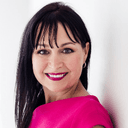Wellness brands: How to develop your USP and use it with success

Posted: Fri 12th May 2023
As a wellness start-up, you need both a strong unique selling point (USP) and a glowing pitch if you're going to win retail listings.
In this blog, Bespoke Advantage founder and Enterprise Nation adviser Janet Milner-Walker shares her advice on developing your USP, building a community and pitching in buyer meetings.
How do you develop a product's USP?
One of the most important steps to getting listings is to create a strong USP. Buyers need to have a range of products that appeal to their customers, so start-up wellness brands must have a clear and appealing point of difference.
Before you develop your brand, you need to do market research. Find out what the trends are and who's doing what in the industry. Learn who you're competing with and how you're going to differentiate yourself.
Wellness brand DECIEM is a good example, describing itself as "The Abnormal Beauty Company". It's differentiated itself by building a direct relationship with customers and leveraging this to find out what those people are looking for. It sets itself apart by:
providing a lot of value in terms of formulation
being competitively priced
being very transparent about the ingredients it uses
Building a community is vital
Buyers expect modern wellness brands to have a strong community. As a new brand, one of the most important things is to build up a social media following.
One way you can demonstrate that is through the number of followers. But, more importantly, you want to people to show how much you engage, and how many people are excited about your product.
Instagram, Facebook and YouTube can all be valuable for new businesses, the latter in particular when it comes to educating customers. Buyers also look for PR and collaborations with complementary brands.
Getting in front of your audience when you're starting out
Pop-ups and trade shows provide an opportunity to meet customers, but trade shows can be quite expensive for a start-up brand.
The purpose of doing them is to get in front of your core consumer – being able to present your product on a one-to-one basis and have conversations with them. That's great market research and brand exposure.
Here are three key points to cover with customers:
Who they are and what they like
What they're looking for
What they think of your brand and product
Research processes for wellness brands
Think about consumer trends and retailers' interest in them. For example, a lot of retailers want to reduce packaging and plastic.
If you're pitching to a chain retailer, you need to visit several stores before you meet their buyers. Depending on the site and location, they might be quite different. See where they would position your brand in store. How would it look on the shelf? Talk to staff and ask what's going on in the company.
In fact, some businesses have taken products into stores, displayed them on shelves and then photographed them so they have an eye-catching image to include in their pitch deck (a presentation that you show buyers).
What happens when you go to a buyer meeting?
In my experience, start-up wellness brands often fail to address the following points:
Pricing: You need to build in retail margins, which can be 50% to 60%, and still afford to be in a retailer.
Retailers' marketing calendars: You may need a budget for promotions.
Merchandising: Some retailers want brochures and leaflets and stands, others don't want anything. You need to factor that into your presentation.
Future product development: Share your plan because they may be looking for something on your roadmap or have feedback.
Your brand story: The reason why you started. The authenticity and point of difference.
In retail, it's about building win-win relationships. As a brand, you need to put yourself in the retailers' shoes and think about the focus of the business and what they're trying to achieve. Develop a brand presentation that shows you understand the retailer you're pitching to.
Relevant resources
Get business support right to your inbox
Subscribe to our newsletter to receive business tips, learn about new funding programmes, join upcoming events, take e-learning courses, and more.
Start your business journey today
Take the first step to successfully starting and growing your business.
Join for free
